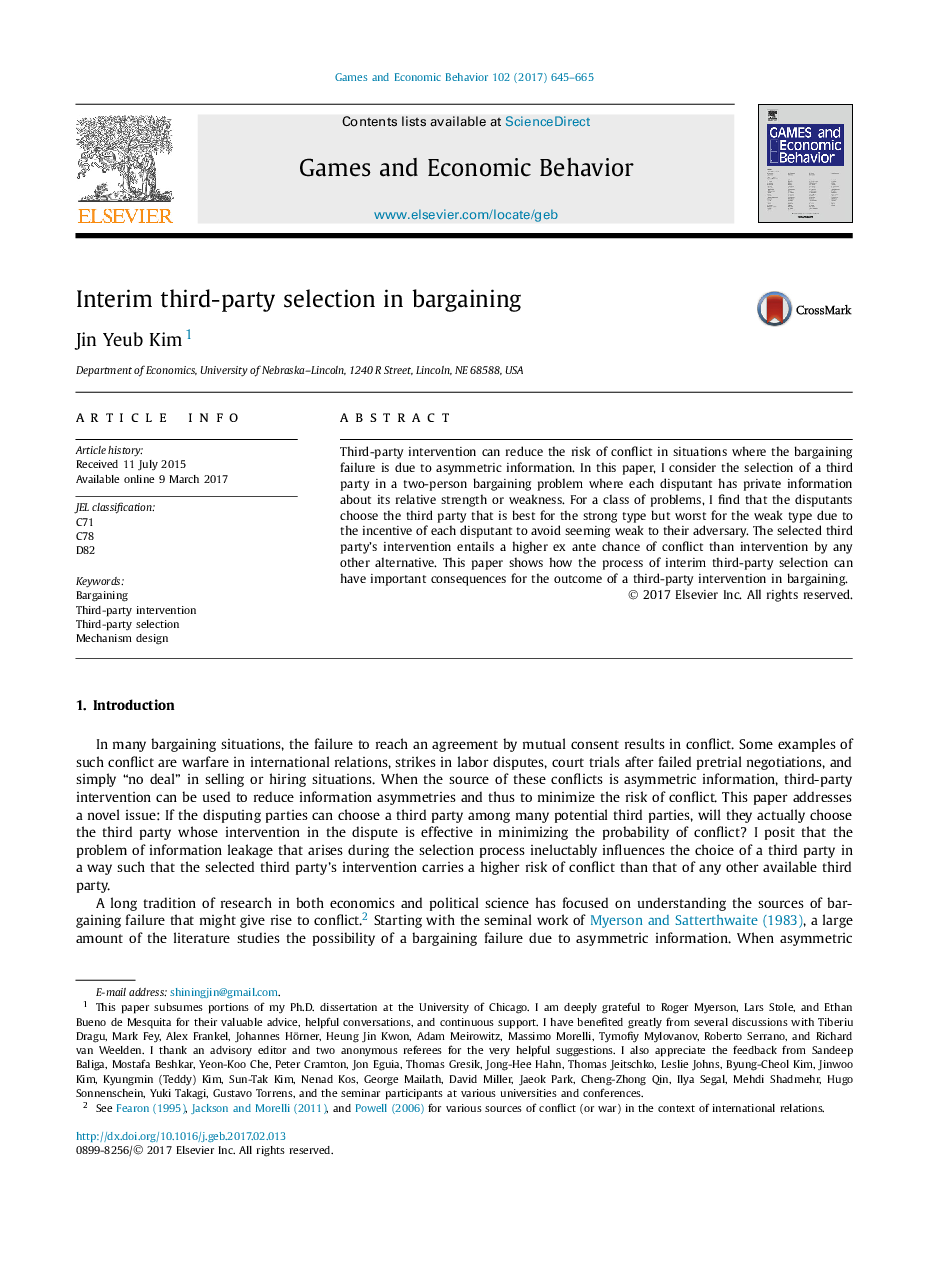| Article ID | Journal | Published Year | Pages | File Type |
|---|---|---|---|---|
| 5071310 | Games and Economic Behavior | 2017 | 21 Pages |
Abstract
Third-party intervention can reduce the risk of conflict in situations where the bargaining failure is due to asymmetric information. In this paper, I consider the selection of a third party in a two-person bargaining problem where each disputant has private information about its relative strength or weakness. For a class of problems, I find that the disputants choose the third party that is best for the strong type but worst for the weak type due to the incentive of each disputant to avoid seeming weak to their adversary. The selected third party's intervention entails a higher ex ante chance of conflict than intervention by any other alternative. This paper shows how the process of interim third-party selection can have important consequences for the outcome of a third-party intervention in bargaining.
Related Topics
Social Sciences and Humanities
Economics, Econometrics and Finance
Economics and Econometrics
Authors
Jin Yeub Kim,
